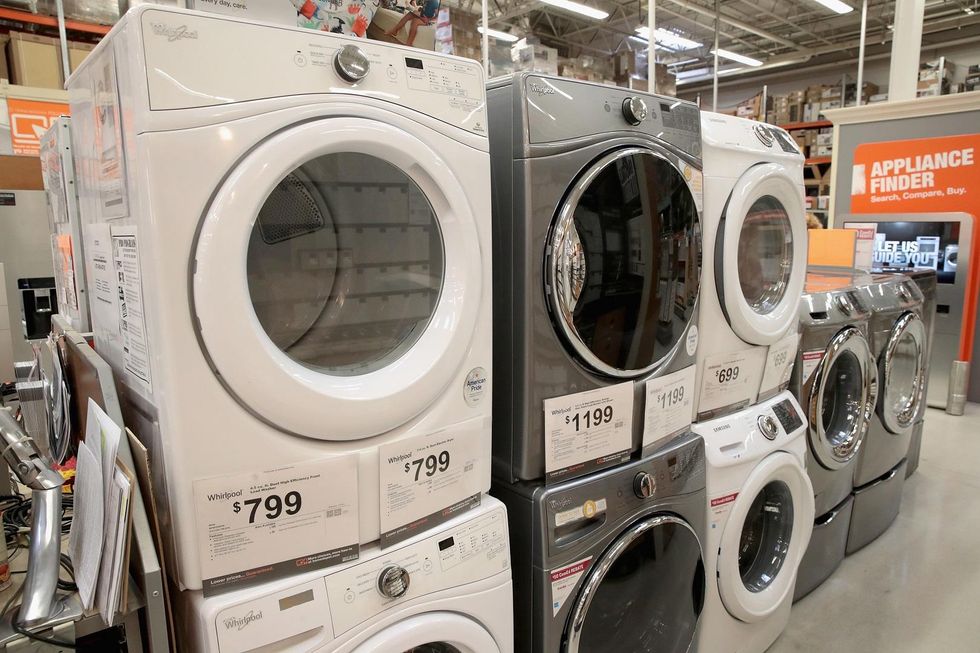When the Trump administration imposed tariffs on the import of foreign washing machines, American-based Whirlpool praised the move. But when the tariffs on steel and aluminum took effect, the company's bottom line started taking a substantial hit, the Wall Street Journal reported.
Here's what you need to know
In January, the Trump administration imposed tariffs on the import of washing machines from other countries. These "safeguard tariffs" started out at 20 percent on the first 1.2 million washing machines imported, and then jumped to 50 percent for all additional washers. The percentages were slated to drop off slightly over the next two years (from 20 to 18 to 16, and from 50 to 45 to 40). For perspective, in 2017 the United States imported roughly 4.2 million washing machines.
In a press release announcing these tariffs, the Office of the United States Trade Representative blamed an increase in imports of foreign washers for a decline in U.S. manufacturers' “financial performance.”
Whirlpool chief executive Marc Bitzer praised this move. “This is, without any doubt, a positive catalyst for Whirlpool,” he told investors.
In March, at the urging of domestic steel and aluminum companies, President Donald Trump announced that the U.S. would be imposing a 25 percent tariff on all steel imports and a 10 percent tariff on all aluminum imports.
While this move has been praised by the steel and aluminum industries, which have seen growth, it has negatively impacted many industries that need raw steel and aluminum. The price of farm equipment has jumped, sometimes by as much as 20 percent, and the largest nail manufacturer in the United States was forced to lay off 12 percent of its staff.
Whirlpool was also hit by these tariffs on raw materials. Its stock price has dropped 15 percent and its net income is down $64 million in the first quarter compared to last year, the Journal said.
In April, Bitzer told investors on a call that “raw-material costs have risen substantially.” He also said that “there continues to be uncertainty regarding potential future tariffs and trade actions,”
The price of washers and dryers sold to consumers climbed 20 percent between April and June, lowering demand for these products, according to the Journal. This was the largest price increase in 12 years.
A spokesperson for Samsung, a foreign competitor of Whirlpool, told the Journal, “We have repeatedly stated that this tariff is a tax on every washing machine buyer in the U.S.,” adding, “Since the tariff was implemented, U.S. consumers have paid more for their washing machines across all brands.”




